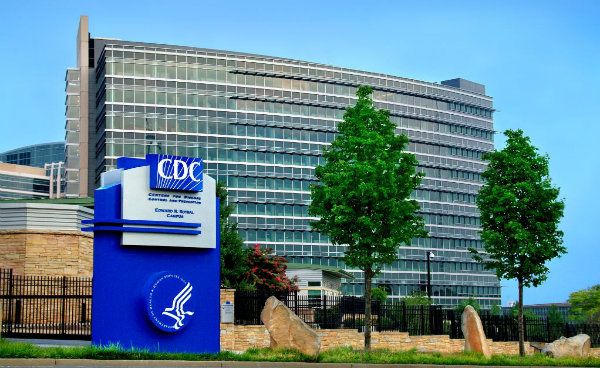
Photo: James Gathany, Centers for Disease Control and Prevention
Because I am an internal-medicine physician, friends and family members frequently ask me to recommend other physicians. When I make these endorsements, they are always of doctors who I trust will deliver the most evidence-based care. Why? Because the doctor who keeps up with the medical literature, whose practice evolves to incorporate new scientific discoveries, is the one who always strives to deliver the best care.
Also, I want to be able to sleep well at night, knowing that my loved ones are in good hands. My friends and family are lucky; they happen to live in communities whose “standards and wishes” are to find the best doctors in their respective fields. They live in communities that are able to invest in public health resources that keep their families safe.
Seven rejected terms
Many Americans do not have that reassurance. Disparities in living conditions, in access to physicians, in risk of chronic diseases, and in the availability of clean, safe environments affect vulnerable people, no matter what their ages or socioeconomic backgrounds, whether they live in urban or rural communities or whether they identify as white or as members of a minority group.
According to a recent story in the Washington Post, the Trump administration recently directed officials at the Centers for Disease Control and Prevention (CDC), the government agency specifically charged with improving the public health of the United States, to refrain from using several words and phrases (“vulnerable,” “entitlement,” “diversity,” “transgender,” “fetus,” “evidence-based” and “science-based”) in documents being prepared for next year’s budget.
Though an official from the Department of Health and Human Services (HHS) quoted in the piece says the HHS (the CDC’s parent agency) supports the use of scientific “ and evidence,” and while later reports state that this is not policy but rather an attempt to gain support from Republican legislators, it sets a dangerous precedent.
This directive left me dumbfounded. I believe doctors should deliver care based only on evidence and patients should receive care rooted only in science. This censorship discredits physicians and scientists who strive to improve the human experience. I cannot think of a viable justification for censorship of standard medical and public health language.
Who pays for censorship?
It’s impossible to articulate a defense of this policy. Its beneficiaries are sellers of snake oil offering alternatives to science-based medicine. The charlatan promising “faith-based” cancer cures will not hesitate to empty a desperate patient’s savings account in return for fake medicine. The politicians allegedly balancing budgets on the backs of the sick will gladly withhold funding for evidence-based preventive care if it interferes with their personal moral and political agendas.
How does a ban affect research and treatment directly? As the Post points out: “At the CDC, several offices have responsibility for work that uses some of these terms. The National Center for HIV/AIDS, Viral Hepatitis, STD, and TB Prevention is working on ways to prevent HIV among transgender people and reduce health disparities. The CDC’s work on birth defects caused by the Zika virus includes research on the developing fetus.”
If the scientific community is censored, already vulnerable communities who do not have the luxury of choosing among many good physicians will likely feel the burden more than other populations do.
Instead of using established terminology, the Trump administration requires the use of alternative language. For example, the Washington Post reports that instead of using “evidence-based,” the preferred wording is that the “CDC bases its recommendations on science in consideration with community standards and wishes.” This statement discredits the science of public health officials who meticulously evaluate their data in the context of the communities in which they work. Wishing that abstinence-only sex education would reduce risky sexual behavior does not change the fact that studies have shown it does not work. Furthermore, to offer alternative language is to suggest that evidence-based medicine does not already incorporate “community standards and wishes.” In my medical practice, each time I see a patient, I deliver evidence-based, patient-centered care, and I employ shared decision-making techniques—all rigorously tested, scientifically proven methods to deliver effective healthcare.
By restricting the language of science, the administration seeks to alter the CDC’s mission, which is to study how to deliver the best care to all Americans, including those who are members of diverse and vulnerable populations.
This act of censorship puts the entire United States at risk of becoming a “vulnerable” population without access to evidence-based care.


Comments on this entry are closed.
Well said.
The anti-intellectualism and anti-science attitude of this administration is stunning. Our response as physicians and rational, caring humans must be both forceful and sustained.
HELLO,
For some time as a Founding Member of the NGO Health Committee at the United Nations, I’ve advocated for a global campaign to eradicate malaria. In partnership with the World Health Organization, I along with the other members of the NGO Health Committee at the United Nations declared that malaria and its causative anopheles mosquito must be eliminated in 10 years or by 2030.
Knowing the Albert Einstein College of Medicine dedication to high quality health care globally and to implementing the very highest standards in the areas of Tropical Medicine and in nfections Disease Control, I thank the whole Albert Einstein family for its concerned focus on the above.